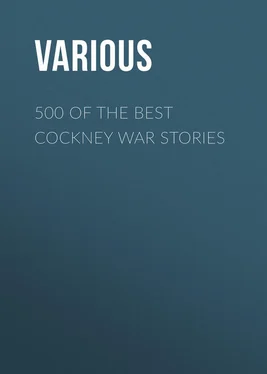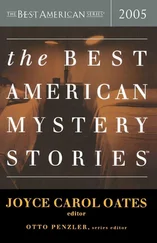Various - 500 of the Best Cockney War Stories
Здесь есть возможность читать онлайн «Various - 500 of the Best Cockney War Stories» — ознакомительный отрывок электронной книги совершенно бесплатно, а после прочтения отрывка купить полную версию. В некоторых случаях можно слушать аудио, скачать через торрент в формате fb2 и присутствует краткое содержание. Жанр: periodic, История, foreign_edu, prose_military, на английском языке. Описание произведения, (предисловие) а так же отзывы посетителей доступны на портале библиотеки ЛибКат.
- Название:500 of the Best Cockney War Stories
- Автор:
- Жанр:
- Год:неизвестен
- ISBN:нет данных
- Рейтинг книги:5 / 5. Голосов: 1
-
Избранное:Добавить в избранное
- Отзывы:
-
Ваша оценка:
- 100
- 1
- 2
- 3
- 4
- 5
500 of the Best Cockney War Stories: краткое содержание, описание и аннотация
Предлагаем к чтению аннотацию, описание, краткое содержание или предисловие (зависит от того, что написал сам автор книги «500 of the Best Cockney War Stories»). Если вы не нашли необходимую информацию о книге — напишите в комментариях, мы постараемся отыскать её.
500 of the Best Cockney War Stories — читать онлайн ознакомительный отрывок
Ниже представлен текст книги, разбитый по страницам. Система сохранения места последней прочитанной страницы, позволяет с удобством читать онлайн бесплатно книгу «500 of the Best Cockney War Stories», без необходимости каждый раз заново искать на чём Вы остановились. Поставьте закладку, и сможете в любой момент перейти на страницу, на которой закончили чтение.
Интервал:
Закладка:
The second Cockney was clad in the full garb of a twenty-stone French peasant woman, hat and all, and was dragging at the end of a chain a stuffed fox, minus its glass case, but still fastened to its baseboard.
They solemnly paraded the whole length of the street and back again, and were heard to remark that the village was having at least one Lord Mayor's Show before Jerry captured it!
And this happened at the darkest time of the war, when our backs were to the wall. — A. C. P. (late 58th London Division), Fulham, S.W.6.
In the fighting around Westhoek in August 1917 the 56th Division were engaged in a series of attacks on the Nonne Boschen Wood, and owing to the boggy nature of the ground the position was rather obscure.
A platoon of one of the London battalions was holding a pill-box which had been taken from the Germans during the day. In the night a counter-attack was made in the immediate vicinity of the pill-box, which left some doubt as to whether it had again fallen to the enemy.
A patrol was sent out to investigate. After cautiously approaching the position and being challenged in a Cockney tongue, they entered the pill-box, and were astonished to see the occupants playing crown and anchor.
The isolated and dangerous position was explained to the sergeant in charge, but he nonchalantly replied, "Yes, I know all abaht that; but, yer see, wot's the use of frightenin' the boys any more? There's been enough row rahnd 'ere all night as it is." — N. Butcher (late 3rd Londons), 43 Tankerville Drive, Leigh-on-Sea.
On the Somme, during the big push of 1916, we had a section of Signallers attached to our regiment to keep the communications during the advance. Of the two attached to our company, one was a Cockney. He had kept in touch with the "powers that be" without a hitch until his wire was cut by a shell. He followed his wire back and made the necessary repair. Three times he made the same journey for the same reason. His mate was killed by a shrapnel shell and he himself had his left arm shattered: but to him only one thing mattered, and that was to "keep in touch." So he stuck to his job.
The wire was broken a fourth time, and as he was about to follow it back, a runner came up from the C.O. wanting to know why the signaller was not in communication. He started back along his wire and as he went he said, "Tell 'im to pay 'is last account, an' maybe the telephone will be re-connected."
A permanent line was fixed before he allowed the stretcher-bearers to take him away. My chum had taken his post at the end of the wire, and as the signaller was being carried away he called out feebly, "You're in touch with H.Q. C.O.'s paid 'is bill, an' we'll win the war yet." — L. N. Loder, M.C. (late Indian Army), Streatham.
In April 1917 two companies of our battalion were ordered to make a big raid opposite the sugar refineries at 14 Bis, near Loos. Two lines of enemy trenches had to be taken and the raiding party, when finished, were to go back to billets at Mazingarbe while the Durhams took over our trenches.
My batman Beedles had instructions to go back to billets with all my kit, and wait there for my return. I was in charge of the right half of the first wave of the raid, and after a bit of a scrap we got into the German front line.
Having completed our job of blowing up concrete emplacements and dug-outs, we were waiting for the signal to return to our lines when, to my surprise, Beedles came strolling through the German wire. When he saw me he called out above the row going on: "I 'opes yer don't mind me 'aving come to the garden party wivout an invertition, sir?"
The intrepid fellow had taken all my kit back to billets some four miles, made the return journey, and come across No Man's Land to find me, and see me safely back; an act which might easily have cost him his life. — L. W. Lees (Lieut.), late 11th Batt. Essex Regt., "Meadow Croft," Stoke Poges, Bucks.
Salonika, 1918, a perfect summer's day. The 2/17th London Regiment are marching along a dusty road up to the Doiran Lake. Suddenly, out of the blue, three bombing planes appear. The order is given to scatter.
Meanwhile, up comes an anti-aircraft gun, complete with crew on lorry. Soon shells are speeding up, and little small puffs of white smoke appear as they burst; but the planes are too high for them. A Cockney of the regiment puts his hands to his mouth and shouts to the crew: "Hi, don't hunch 'em; let 'em settle." — A. G. Sullings (late 2/17th London Regiment), 13 °Cann Hall Road, Leytonstone, E.11.
On July 1, 1916, the 56th (London) Division attacked at Hebuterne, and during the morning I was engaged (as a lineman) in repairing our telephone lines between Battalion and Brigade H.Q. I had just been temporarily knocked out by a flat piece of shell and had been attended by a stretcher-bearer, who then left me and proceeded on his way back to a dressing station I had previously passed, whilst I went farther on down the trench to get on with my job.
I had not gone many yards when I met a very young private of the 12th Londons (the Rangers). One of his arms was hanging limp and was, I should think, broken in two or three places. He was cut and bleeding about the face, and was altogether in a sorry plight.
He stopped and asked me, "Is there a dressing station down there, mate?" pointing along the way I had come, and I replied, "Yes, keep straight on down the trench. It's a good way down. But," I added, "there's a stretcher-bearer only just gone along. Shall I see if I can get him for you?"
His reply I shall never forget: "Oh, I don't want him for me . I want someone to come back with me to get my mate. He's hurt! " — Wm. R. Smith, 231 Halley Road, Manor Park, E.12.
Above the entrance to a certain dug-out somewhere in Flanders some wit had fixed a board upon which was roughly painted, "The Winkle Shell."
The ebb and tide of battle left the dug-out in German hands, but one day during an advance the British infantry recaptured the trench in which "The Winkle Shell" was situated.
Along the trench came a Cockney with his rifle ready and his bayonet fixed. Hearing voices coming from the dug-out he halted, looked reflectively at the notice-board, and then cautiously poking his bayonet into the dug-out called out, "Nah, then, come on aht of it afore I gits me blinkin' 'pin' busy." — Sidney A. Wood (late C/275 Battery, R.F.A.), 32 Lucas Avenue, Upton Park, E.13.
We were in a trench in front of Carnoy on the Somme when the Germans made a raid on us. It was all over in a few minutes, and we were minus eight men – taken away by the raiders.
Shortly afterwards I was standing in a bay feeling rather shaky when a face suddenly appeared over the top. I challenged, and was answered with these words:
"It's orl right. It's me. They was a-takin' us to a dance over there, but I abaht-turned 'arfway acrorst an' crawled back fer me pumps." — E. Smith (late Middlesex Regt.), 2 Barrack Road, Aldershot.
One day in 1916 I was sitting with some pals in a German dug-out in High Wood. Like others of its kind, it had a steep, deep shaft. Suddenly a shell burst right in the mouth of the shaft above, and the next instant "Nobby," a Cockney stretcher-bearer, landed plump on his back in our midst. He was livid and bleeding, but his first words were: "Strike! I thought the lift were outer order!" — J. E., Vauxhall, S.W.8.
Читать дальшеИнтервал:
Закладка:
Похожие книги на «500 of the Best Cockney War Stories»
Представляем Вашему вниманию похожие книги на «500 of the Best Cockney War Stories» списком для выбора. Мы отобрали схожую по названию и смыслу литературу в надежде предоставить читателям больше вариантов отыскать новые, интересные, ещё непрочитанные произведения.
Обсуждение, отзывы о книге «500 of the Best Cockney War Stories» и просто собственные мнения читателей. Оставьте ваши комментарии, напишите, что Вы думаете о произведении, его смысле или главных героях. Укажите что конкретно понравилось, а что нет, и почему Вы так считаете.












